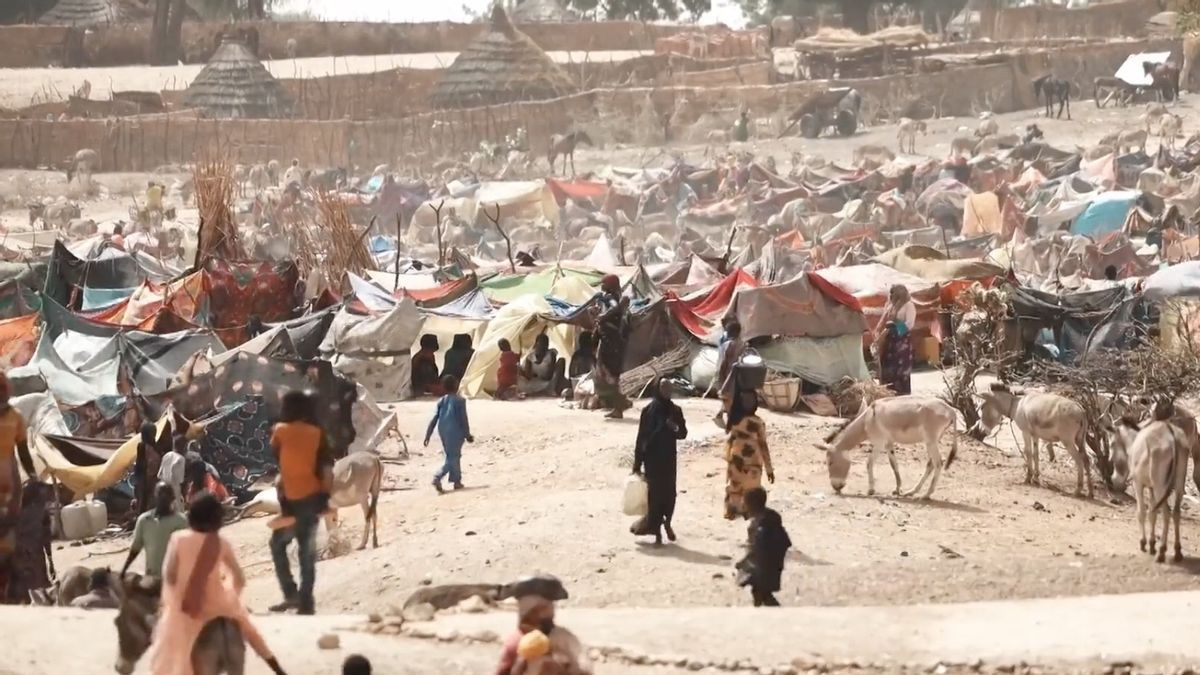JAKARTA - The United Nations (UNHCR) refugee affairs agency said on Tuesday more than four million people were displaced by the Sudan crisis and expressed concern over the impact of the conflict on health services.
Amid the increasing number of refugees, UNHCR is "deeply concerned about the decline in health conditions across the country, including in refugee camps," said UNHCR representative William Spindler as reported by ANTARA from Anadolu, Wednesday, August 9.
"The situation within Sudan, where the UNHCR team is located, cannot be maintained because the need is much greater than what humans can do with existing resources," Spindler said.
"In the Nil Putih region, health and nutrition services in all 10 refugee camps are severely affected by the scarcity of primary medicines, health workers and supplies," he said.
In addition, more than 144,000 refugees have just arrived from Khartoum, who joined South Sudanese refugees and local communities who use health clinics.
Spindler said the number of refugees included 700,000 refugees and asylum seekers fleeing to neighboring countries, as well as 195,000 South Sudanese forced to return to their home countries.
He said that in Sudan, more than four million people were forced to flee, including 187,000 of whom had lived in the country since the beginning of the crisis.
"Most families move for weeks with little food and medicine supplies, and this increases the number of malnutrition, disease outbreaks, and deaths from the outbreak are still a concern," Spindler said.
He highlighted more than 300 deaths reported, especially among children under the age of five, as a result of smallpox and malnutrition that occurred between May 15 and July 17.
Lack of essential medicines, health workers, and supplies affect health and nutrition services. In addition, outbreaks of severe pagoda and malaria are expected to occur in the months to come due to flooding.
Since the conflict broke out in April, the health and nutrition status of refugees arriving from Sudan to South Sudan and Chad has declined rapidly and continues to deteriorate, he said.
اقرأ أيضا:
Spindler said the situation across the border was equally bad.
Regarding attacks on health workers and institutions, Christian Lindmeier of the World Health Organization (WHO), said there were 53 attacks on health workers between April 15 and July 31.
Lindmeier called for attacks on health workers or adverse violations of human rights to be stopped and said "humanitarian workers need security and safety guarantees when providing essential humanitarian and health assistance."
Sudan has since April been damaged by fighting between military groups and Rapid Support Forces. The conflict killed more than three thousand civilians and injured thousands more, according to local medical personnel.
The English, Chinese, Japanese, Arabic, and French versions are automatically generated by the AI. So there may still be inaccuracies in translating, please always see Indonesian as our main language. (system supported by DigitalSiber.id)













